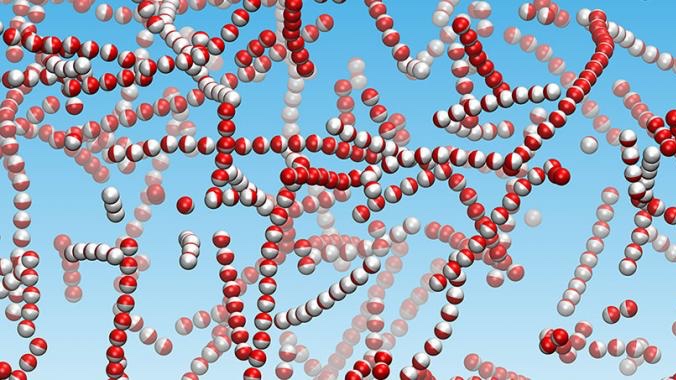
Inspired by how bees fly in a swarm and bacteria form clusters, the team affiliated with Ulsan National Institute of Science and Technology (UNIST) set out to duplicate this behavior in the laboratory. Starting with computer models, a team led by Dr. Erik Luijten of Northwestern University designed a set of self-propelled colloidal spheres that self-arrange into a pattern when exposed to an electric field.
The researchers then tested their simulation in the laboratory using specialized spheres called Janus colloids, which were created by lead researcher Dr. Steve Granick of the IBS Center for Soft and Living Matter at the UNIST School of Natural Science. These Janus particles have two sides — one with a positive charge and the other with a negative charge. When exposed to an electric field, the charges on the particles are modified, and their electrostatic interactions change. As a result, some particles are actively repulsed, some particles are strongly attracted to each other, and some particles remain neutral. This imbalance in attractions makes its possible for the spheres to form automatically into patterns such as a chain, sphere, or cluster.
The international team hopes its research someday will be used to improve drug delivery in the medical field. The team envisions a future where drugs are placed inside of these spheres, which will self-assemble at the site of the body where the drugs are most needed. They also could be used to build self-forming microrobots that exist as individual particles until they are required to self-assemble into an operational machine.



